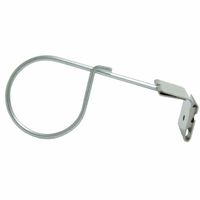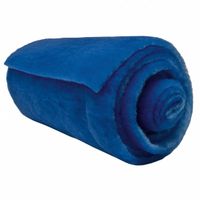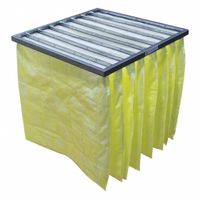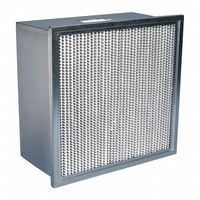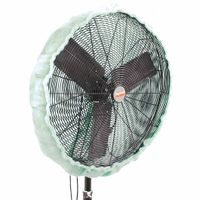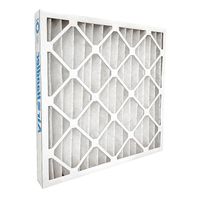Call +(254) 703 030 000 / 751 483 999 / 721 704 777
- Home
- Hvac And Refrigeration
- Air Filters
.....Read More
Frequently Asked Questions
What is the purpose of air filters in commercial HVAC systems?
Air filters in commercial HVAC systems serve several critical purposes. Primarily, they protect the indoor air quality by trapping airborne particles such as dust, pollen, mold spores, and bacteria. This helps create a healthier and more comfortable environment for occupants, reducing respiratory issues and allergies. Secondly, filters protect the HVAC equipment itself. By preventing dirt and debris from accumulating on coils, fans, and other components, they maintain the system's efficiency and extend its lifespan. Clogged coils, for instance, can reduce heat exchange efficiency, leading to increased energy consumption and higher operating costs. Regular filter replacement is essential to ensure the continuous effective operation of the HVAC system, optimizing both air quality and equipment performance.
How often should industrial HVAC air filters be replaced?
The frequency of industrial HVAC air filter replacement depends on several factors, including the type of filter, the operating environment, and the system's usage. Generally, it is recommended to replace MERV 8 filters every 1 to 3 months, while higher-efficiency MERV 13 filters may last 3 to 6 months. For activated carbon filters, replacement is often necessary every 6 to 12 months, or as indicated by odors. Environments with high levels of dust, pollen, or other airborne contaminants, such as manufacturing plants or construction sites, will require more frequent replacements. Conversely, in cleaner environments, filters may last longer. Regular inspections of the filters are crucial; if they appear visibly dirty, torn, or show signs of reduced airflow, they should be replaced immediately, regardless of the typical schedule. Adhering to a consistent replacement schedule helps maintain optimal air quality, extends the lifespan of the HVAC system, and improves energy efficiency.
What is a MERV rating and why is it important?
A MERV (Minimum Efficiency Reporting Value) rating is a measurement scale designed to rate the effectiveness of air filters. The scale ranges from 1 to 20, with higher MERV ratings indicating a greater ability to capture airborne particles.
Filters with lower MERV ratings (1-4) are typically found in residential furnaces and capture larger particles like pollen, dust mites, and carpet fibers. Mid-range MERV filters (5-12) are more effective at trapping smaller particles such as mold spores, pet dander, and auto emissions, making them suitable for most homes and light commercial spaces. Higher MERV ratings (13-20) are used in hospitals and cleanrooms, as they can capture extremely small particles like bacteria and viruses.
The importance of a MERV rating lies in its impact on indoor air quality and HVAC system efficiency. Choosing an appropriate MERV rating is crucial: * **Improved Air Quality:** Higher MERV ratings lead to cleaner indoor air, reducing allergens, irritants, and pollutants that can affect respiratory health.
* **System Protection:** A good filter protects your HVAC system from dust and debris buildup, which can reduce efficiency and lead to costly repairs.
* **Energy Efficiency:** While higher MERV filters offer superior filtration, they can also restrict airflow more, potentially making your HVAC system work harder. It's important to select a MERV rating that is compatible with your specific HVAC system to avoid damaging it or increasing energy consumption.Understanding MERV ratings helps consumers and businesses select the right air filters for their needs, balancing air purification with system performance and energy costs.
How do I choose the right MERV rating for my HVAC system?
Choosing the right MERV (Minimum Efficiency Reporting Value) rating for your HVAC system involves balancing air filtration efficiency with system performance. MERV ratings range from 1 to 20, with higher numbers indicating better filtration of smaller particles.
For most residential homes, a MERV rating of 8 to 11 is generally sufficient. This range effectively captures common allergens like pollen, dust mites, pet dander, and mold spores without significantly restricting airflow. Filters in this range strike a good balance between air quality and energy efficiency, preventing your HVAC system from working harder than necessary.
If you or someone in your household has allergies, asthma, or other respiratory sensitivities, you might consider a MERV 13 filter. These filters are more effective at trapping smaller particles, including some bacteria and viruses. However, using a higher MERV filter can increase static pressure on your HVAC system, potentially reducing its lifespan and increasing energy consumption if your system isn't designed for it. It's crucial to consult your HVAC system's manufacturer recommendations or a qualified technician before using MERV filters higher than 13.
Avoid using filters with MERV ratings of 14 or higher in standard residential systems, as they are often too restrictive for typical home HVAC units and can lead to reduced airflow, system strain, and even damage. These higher-rated filters are generally designed for commercial or medical facilities with specialized HVAC systems.
Ultimately, the best MERV rating for your HVAC system depends on factors like household health concerns, local air quality, and the specific capabilities of your unit. Regular filter changes are also vital, regardless of the MERV rating, to maintain optimal air quality and system efficiency.
What are the different types of HVAC air filters available?
Different types of HVAC air filters include: * **Fiberglass filters:** These are inexpensive, disposable, and offer basic filtration for larger particles like dust and lint. They have a low MERV (Minimum Efficiency Reporting Value) rating, typically between 1-4.
* **Pleated filters:** Made from cotton or synthetic fibers, these filters have more surface area due to their pleated design, allowing them to capture smaller particles like pet dander, pollen, and mold spores. They have MERV ratings ranging from 5-13.
* **Washable/Reusable filters:** These are typically made of electrostatic material and can be cleaned and reused, making them a more environmentally friendly option. Their MERV ratings are generally in the mid-range (5-8).
* **Electrostatic filters:** These filters use static electricity to attract and trap airborne particles. They can be disposable or reusable and often have higher MERV ratings (8-10) than basic fiberglass filters.
* **HEPA (High-Efficiency Particulate Air) filters:** These are the most effective at removing airborne particles, capturing 99.97% of particles 0.3 microns or larger, including bacteria and viruses. They have MERV ratings of 17-20 and are often used in medical facilities or for individuals with severe allergies or asthma. However, they can restrict airflow in residential HVAC systems not designed for them.
* **UV (Ultraviolet) light filters:** While not a traditional filter, UV lights can be installed in HVAC systems to kill mold, bacteria, and viruses as air passes through. They are often used in conjunction with other filter types.
How does a high MERV rating affect HVAC system performance?
A high MERV (Minimum Efficiency Reporting Value) rating indicates that an HVAC (Heating, Ventilation, and Air Conditioning) system's filter is more effective at capturing airborne particles, including dust, pollen, pet dander, mold spores, and even some bacteria and viruses. This directly impacts indoor air quality by reducing the concentration of these contaminants.
For system performance, a higher MERV rating generally means a denser filter media, which can increase resistance to airflow. This increased resistance makes the HVAC system's fan work harder to push air through the filter, potentially leading to higher energy consumption and increased wear and tear on the fan motor. If the filter is too restrictive for the system, it can reduce airflow significantly, diminishing heating and cooling efficiency and potentially causing the system to short-cycle or even freeze up in the case of air conditioners.
Therefore, while a higher MERV rating offers superior air filtration, it's crucial to select a MERV rating that is compatible with your specific HVAC system to avoid negatively impacting its performance and lifespan. Most residential systems are designed for MERV 8 to 13 filters, balancing effective filtration with efficient system operation.
Can a high-efficiency filter damage my HVAC system?
High-efficiency HVAC filters, while beneficial for air quality, can potentially cause issues if your system isn't designed for them. These filters have a denser material, which can restrict airflow. If your HVAC system struggles to pull enough air through, it can lead to several problems: * **Reduced Airflow:** This is the most common issue. Insufficient airflow can make your system work harder to heat or cool your home, leading to higher energy bills and decreased efficiency.
* **System Overheating:** When airflow is restricted, the furnace heat exchanger or the AC evaporator coil can overheat. This can cause components to fail prematurely and potentially lead to costly repairs.
* **Frozen Evaporator Coil:** In air conditioning systems, reduced airflow can cause the evaporator coil to get too cold and freeze, preventing proper cooling.
* **Blower Motor Strain:** The blower motor has to work harder to pull air through a restrictive filter, which can shorten its lifespan.To avoid these problems, check your HVAC system's manufacturer recommendations for filter types and MERV ratings. If you want to use a high-efficiency filter, consider consulting with an HVAC professional to ensure your system can handle it without issues. Sometimes, a system may need modifications or a different filter type to optimize performance and prevent damage.
What are the benefits of using high-efficiency HVAC air filters?
High-efficiency HVAC air filters, often rated with a MERV (Minimum Efficiency Reporting Value) of 11 or higher, offer several significant benefits for both indoor air quality and HVAC system performance.
Firstly, they dramatically improve indoor air quality by capturing a wider range of airborne particles compared to standard filters. This includes microscopic allergens like pollen, pet dander, and dust mite debris, as well as bacteria, mold spores, and even some viruses. For individuals with allergies, asthma, or other respiratory sensitivities, this can lead to a noticeable reduction in symptoms and a healthier living or working environment.
Secondly, these filters help to keep your HVAC system cleaner. By preventing tiny particles from circulating through the ducts and settling on internal components like the evaporator coil and fan, they can improve the system's efficiency. A cleaner system operates more effectively, uses less energy, and is less prone to breakdowns, potentially extending its lifespan and reducing maintenance costs.
Thirdly, high-efficiency filters can reduce the amount of dust that accumulates on surfaces throughout your home or office, leading to less frequent cleaning. While the initial cost of these filters might be slightly higher, the long-term benefits in terms of health, system longevity, and reduced cleaning efforts often outweigh the initial investment. Regular replacement according to manufacturer guidelines is crucial to maintain their effectiveness and prevent airflow restrictions.
How do I know if my HVAC air filter needs to be changed?
To determine if your HVAC air filter needs to be changed, several indicators can help you. A common recommendation is to check and potentially replace your filter every 30 to 90 days, but this can vary based on factors like the type of filter, the number of occupants in your home, pets, and local air quality.
Visually inspect the filter: If it appears dirty, clogged with dust, dirt, or debris, it's time for a change. A clean filter typically allows light to pass through easily, whereas a dirty one will block light.
Reduced airflow from your vents is another sign. A clogged filter restricts air movement, making your HVAC system work harder and less efficiently. This can lead to higher energy bills and decreased comfort.
An increase in dust around your home, even after cleaning, can indicate a dirty filter that's no longer effectively trapping particles. If you notice unusual odors coming from your vents, it could also be a sign that the filter is no longer preventing the circulation of various airborne particles or contaminants.
Finally, if anyone in your household is experiencing an increase in allergies or respiratory issues, a dirty air filter could be contributing to poor indoor air quality. Regularly checking your filter and changing it when needed ensures your HVAC system runs efficiently and helps maintain a healthy indoor environment.
What are the signs of a clogged or dirty HVAC air filter?
A clogged or dirty HVAC air filter can significantly impact the efficiency and performance of your heating, ventilation, and air conditioning system. One of the most common signs is reduced airflow from your vents, leading to uneven temperatures throughout your home. You might notice some rooms are warmer or cooler than others, indicating that the system is struggling to distribute conditioned air effectively.
Another clear indicator is an increase in your energy bills. When the filter is obstructed, your HVAC system has to work harder to pull air through, consuming more electricity and leading to higher operating costs. You may also observe a noticeable accumulation of dust on surfaces in your home, even shortly after cleaning, as the dirty filter can no longer effectively trap airborne particles.
Additionally, a dirty filter can cause your system to cycle on and off more frequently, known as short cycling. This not only puts more wear and tear on your HVAC unit but also results in less efficient heating or cooling. In some cases, you might even detect a musty or stale odor emanating from your vents, as the filter can harbor mold or mildew when it becomes excessively dirty. Regularly checking and replacing your HVAC air filter is crucial for maintaining good indoor air quality, system efficiency, and the longevity of your unit.
